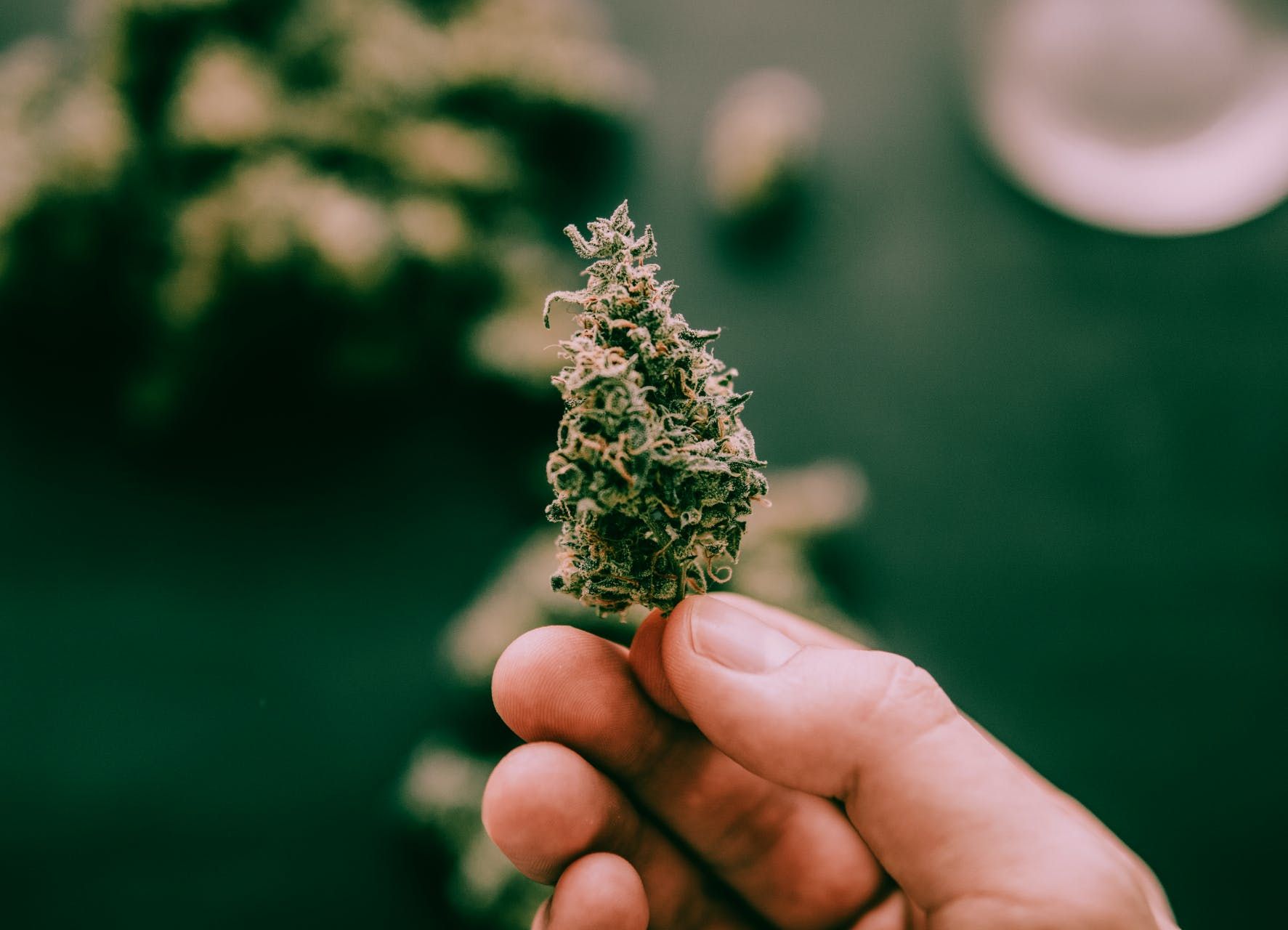The effects of cannabis can sometimes feel like a miracle, easing pain and stress, and helping with the symptoms of hard-to-treat medical conditions. But when you’re applying for a new job—or trying to keep an existing one—there’s one thing that can turn this incredible blessing into a curse: mandatory drug testing.
There are few things as stressful as finding out that your job has required drug testing for marijuana. And it always brings up the same question: How long does cannabis stay in your system?
FOLLOW US ON FACEBOOK & INSTAGRAM
Unfortunately, finding an answer to this question is a lot more complicated than you’d think. Variables can change the answer drastically, like:
- Individual metabolism
- Frequency of consumption
- Potency of the medicine
- Sensitivity of the drug test
Let’s go over the science behind how we metabolize cannabis, and find out what your chances are of passing that upcoming drug test.
The Science Behind How Cannabis Gets Metabolized in Your Body
Cannabis has some pretty powerful effects, but how does it interact with the human body to produce them? Well, it all starts with the endocannabinoid system (ECS). This crucial system of neurotransmitters is found all over the body, and controls or affects some of its most important functions, such as:
- Hunger
- Pain
- Stress response
- Memory building
- Inflammation
- Sleep
- Muscle control
- Energy
- Mood
The ECS both produces and gets activated via your body’s natural endocannabinoids. But plant cannabinoids, the medicinally potent chemicals in cannabis, such as tetrahydrocannabinol (THC) and cannabidiol (CBD), also activate the ECS. When these cannabinoids are consumed, they enter the bloodstream, causing cannabinoid levels to temporarily rise.
These cannabinoid levels can be seen in drug tests hours after consuming cannabis, but drop significantly in the days that follow. Unfortunately, this isn’t where things end.
Cannabinoids like THC (and their by-products, or metabolites) are all fat-soluble and tend to accumulate in fat. So, even after these cannabinoids leave your bloodstream, they’re still stored in your fat reserves. Your body then slowly releases the cannabinoids over time.
This makes things complicated when it comes to drug testing, because the signs of cannabis consumption can hang around for months, even after you’ve stopped consuming the plant completely.
The Different Kinds of Drug Tests for Marijuana
If you’re worried about how long drug tests can detect cannabis, understanding the actual test itself is important. Different types of testing can detect the signs of cannabis at varying rates. This means you’ll have different windows of time to consider, depending on the test.
If you’re taking a blood or saliva test, for example, you’ll have a much shorter window for detection than with other methods. Blood and saliva tests can detect the spike in THC in the hours and days immediately following consumption. But they aren’t able to detect the longer-lasting signs of cannabis.
Unfortunately, it’s rare for drug tests to use blood or saliva. Instead, most drug testing uses the standard urine test. This method of testing doesn’t look for THC directly, but instead detects its metabolite THC-COOH, which remains in the body much longer than THC does.
Still, determining how long THC-COOH will stay in your system isn’t easy. There’s a huge amount of variability when it comes to these tests. Estimates range from three to 77 days for the metabolites in the urine to clear out of a given individual’s system. Meanwhile, hair tests can detect cannabis consumed as long as 90 days ago.
So, why is there such a huge range when it comes to testing for marijuana?
For one thing, the tests can have different levels of sensitivity to THC-COOH. Or in other words, some tests will allow higher levels of the metabolite to be detected before it’s considered a failed test. The more sensitive your test, the longer the window will be for detection.
Metabolism & Frequency of Consumption Affect How Long Cannabis Is Stored in Your Body
Individual metabolism can also play a big role in detecting marijuana and its metabolites. Research has shown a high variability from person to person when it comes to drug testing. Since cannabis is stored in fat, folks with a higher body fat percentage can have a harder time ridding their system of cannabinoids.
People with faster metabolisms and leaner body types tend to be able to clear their systems of these markers more quickly. But even among people with similar body types and lifestyles, there can be differences in how they metabolize cannabis, thereby adding to the variability.
The frequency and potency of cannabis consumption may also play a factor. If you’re a chronic marijuana consumer who partakes over an extended period of time, you’ll likely take a lot longer to clear your system than folks who’ve only taken cannabis once or twice. This may be in part because chronic consumers have had more opportunity to store THC in their fat reserves, and so have more stored THC that needs to be flushed out.
Can You Really Tell How Long Cannabis Stays in Your System?
So how long does cannabis stay in your system? There’s no easy answer.
But if you’re an everyday cannabis consumer, the chances are low that you’ll pass a drug test without undergoing a long period of cannabis abstinence. How long that period of abstinence should be is unclear. Unfortunately, in this kind of situation, there’s simply no accurate way to predict the timing.
RELATED: DETOX: HOW TO FLUSH MARIJUANA FROM YOUR BODY
It’s not even clear that testing for the cannabis metabolites ahead of time would help in checking whether you’ve rid your system of cannabis. Some folks have stopped consuming cannabis and had a negative test for THC, but then have taken a second test that showed a positive result for THC.
Because cannabis is stored in fat, factors like dehydration or exercise can cause a sudden increase of available cannabinoids in your system. This can lead to a positive test result even if you’ve already have a negative test result and haven’t consumed any cannabis since.
Still, keeping these general warnings in mind, there have been a few studies that give us information about the usual windows for detection with different tests.
For example, in a 2005 review of drug detection literature, the author noted that while it’s possible for cannabis detection times to exceed 30 days, it’s a very rare occurrence.
A study from 1989 shows a maximum marijuana detection window of 25 days with an average window of 9.8 days for a test with sensitivity levels of 20 ng/mL. Still, this window is likely to expand with chronic cannabis consumption.
A 1984 study looking at chronic cannabis consumption showed some cannabis consumers can take up to 40 days to test clean on a less sensitive test (50 ng/mL). Others in the study were able to get a negative result after just 13 days of cannabis abstinence. But fluctuation between negative and positive results was common in this window.
While you should take any estimates about how long cannabis can be detected in your body with a big grain of salt, you may want to consider some general guidelines on how long you’ll need to wait for your system to clear. These may or may not hold true for you, but covers most cases:
- If you’ve consumed cannabis once this month, abstain for up to eight days.
- If you’ve consumed cannabis four to six times this month, abstain for up to 15 days.
- If you’ve consumed cannabis 10–15 times this month, abstain for up to 30 days.
- If you’ve consumed cannabis 20 times or more this month, abstain for 45–80 days.
Photo credit: Lifestyle discover/Shutterstock.com
If you’re new to cannabis and want to learn more, take a look at our Cannabis 101 index of articles. And if you have questions about cannabis, ask them and our community will answer.






